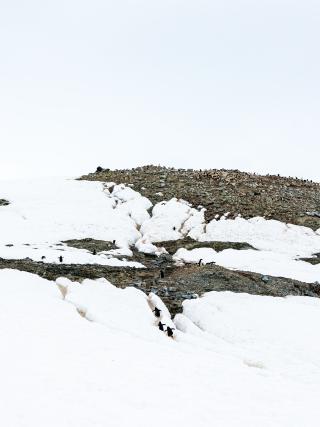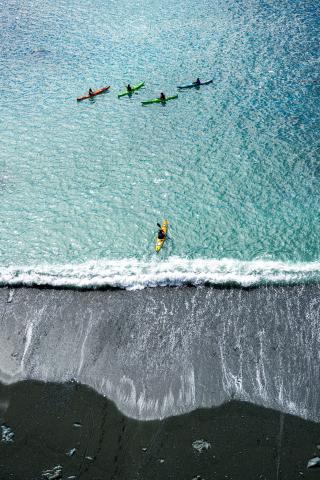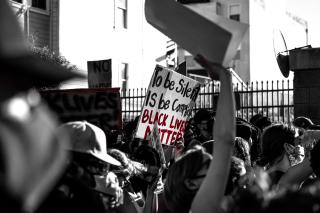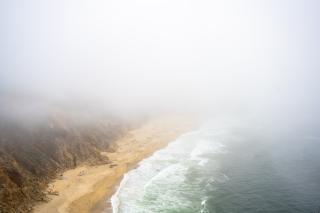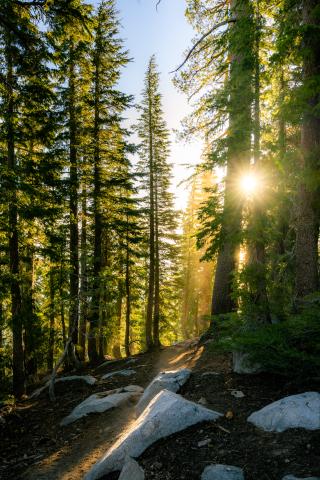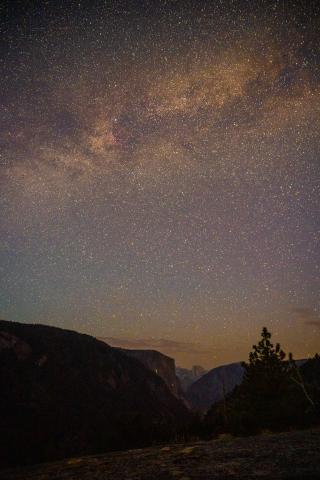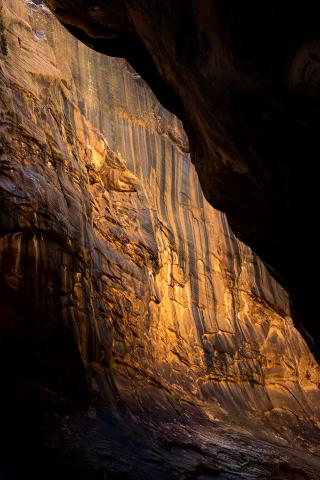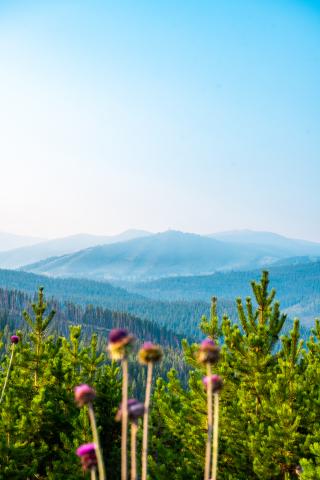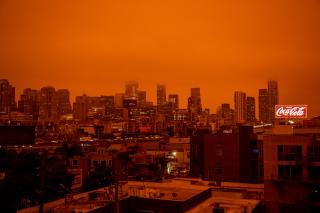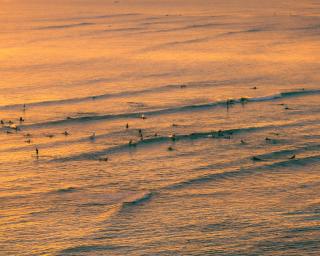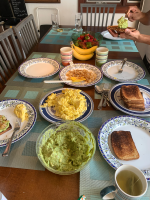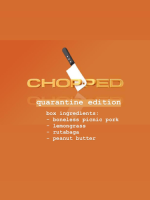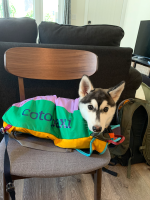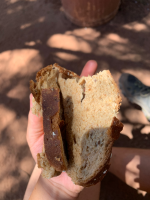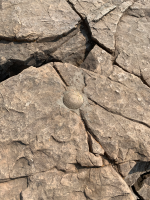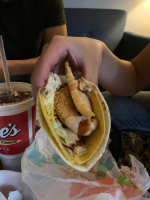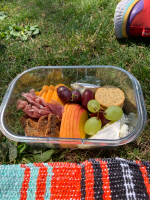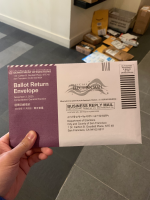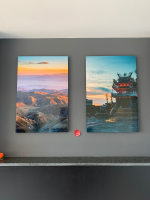A vibration ripples out from my phone. It’s a message from a classmate asking about my rooming plans for next semester with a not-so-subtle suggestion at a better option. I’m nearing the end of my first year in college, and having been successful at my quest to fit in, I’m tempted to change as little as possible to keep the good things going. The proposal to room with someone new (who I knew from the very intimate experience of recognizing their face across the dining hall every once in a while) was both an opportunity and a risk. It could be the start of a beautiful new relationship, or it could be the unremarkable beginning to a year of pain and troubles. I remember taking a few days to consider the offer but not having a strong conviction either way. Perhaps it truly was a quintessential “f-it” moment where my instincts momentarily held sway over my body that forked of a new branch in my life. It turned out to be a golden opportunity as that mysterious dining-hall person became one of my closest friends. It could’ve turned out poorly, but it ended up being one of the most impactful events to the direction of my life.
“Every morning, Mozasu and his men tinkered with the machines to fix the outcomes—there could only be a few winners and a lot of losers. And yet we played on, because we had hope that we might be the lucky ones. How could you get angry at the ones who wanted to be in the game? Etsuko had failed in this important way—she had not taught her children to hope, to believe in the perhaps-absurd possibility that they might win. Pachinko was a foolish game, but life was not.”
ー Pachinko by Min Jin Lee
Last year this time I was on the deck of a vessel headed towards the edge of the world as I explored the concept of exploration and made a commitment to doing more than thinking in 2020. Right now, I’m sitting in my kitchen clacking away on my laptop with a small porcelain bowl of leftover duck fried rice, slightly steaming from the microwave, wondering when a time for free exploration of what the world has to offer will come again. Suffice it to say that this year’s conditions didn’t prove to be very conducive to the goals I gave myself in line with the exploration theme, such as having a conversation with a stranger every day. Yet despite all the twists and turns, I can’t imagine being anything but grateful for how my life has been relatively unscathed from the turmoils of the world. I’ve been able to keep a job that affords me the opportunity to grow and learn and impact, treasure time with my family and friends, and stretch my creative boundaries. The only feeling that continues to weigh on my mind is one of “what if.” What if the U.S. had leveraged its brilliant scientists and dedicated civil servants in combination with early warnings to combat the virus quickly and effectively? What if people and communities could come together, casting aside differences to support each other, in a time of need instead of fanning the flames while an existential, uncaring threat bore down on society? What if I hadn’t held myself back from experiencing everything I wanted before that freedom was taken away?

an unforgettable day in San Francisco during wildfires that can only be interpreted as the apocalypse (see more here)
A series of what ifs, uncontrollable and controllable, is what followed me into my yearly reflection1, and I came out of it with a single word to define my next year:
GAMBLE.
Gambling probably brings to mind a symphony of flashing lights, a mosaic of spinning displays, an unabashed bastion to pleasures and excess. Although those may be the common associations with the word, the gamble that I’m thinking about involves something that has no value in monetary terms. To gamble is to bet, to stake a wager in a belief, a dream even. When I breathe in gamble, I see the hard concrete of my small room in Beijing where I was due to live and study on my own for the next month. I feel the suffocation from the slurry of the sweltering summer heat and the anxiety tsunami caving in my stomach, a byproduct of anticipating the state-competitive team that I was getting introduced to as the slowest runner from my old school. I feel the unexpected rush of energy, buoying my hand up, while my mind fought to catch up, to try out some lines for Horton in our summer production, the words catching in my throat as my imaginations of what my classmates would think of me finally registered. When I think of gambling, I think of gambling with my life, of wagering everything of value, to live out the dream hidden in my heart.
I’ve always had a rocky relationship with my fears. I like to think of myself as a hopeless optimist, and while I certainly have the naive idealism for it, what holds me back are my fears of what if, of overexposing myself, of venturing too far from the conventional. It was my fear of the unknown that kept me confined in the walls of the university compound, not daring to explore the wonder that Beijing had to offer beyond. It was my fear of the limits of my ability that kept me shielded in my protective bubble of self-determinism: “I was never cut out for cross country.” It was my fear of other’s perceptions that kept me from giving my heart up to the mystical world of Dr. Seuss and embodying everything I thought Horton to be. For someone who professes positivity, it’s an ironic twist that I live a life carefully monitored by my prowling doubts. It’s a human response that comes from a mindset of scarcity2ーa leftover from our hunting days of prioritizing caution and pragmatism for the sake of survival. But I realized that I’m not satisfied with merely surviving: I want life to be a story of reaching and leaping and thriving.
Funnily enough, it seemed like I was a great actor when it came to replacing my own identity with one of a fictitious image. The mold of the model student that I found myself inhabiting in school during my formative years kept me away from anything that would threaten that perception. I maintained the image as if my life depended on it as I grew up hearing the horrors that could come from a single misstep, a scholarship rescinded from a photo or the dream of becoming a doctor vanquished by a sharing of answers. My mind began to associate risk with the worst possible outcomes and wrote off scary situations as too dangerous for the payoff.
It wasn’t that I didn’t want to take risksーit merely wasn’t the logical choice that my scarcity mindset prized, and so it happened that the fears that had convinced my brain took my heart captive. It wasn’t until I was given the opportunity to start my identity from a clean slate that I was able to start to challenge this mindset and engrave the principles I wanted to live by3. I embarked on a journey to live by the heart rather than by the animal brain hidden deep inside. Progress came little by little, but it wasn’t nearly enough to change my fundamental relationship with my fears. They still had a hold over my actions, albeit now with some resistance. I had a way to fight, but I wasn’t winning yet. As I look back on those little skirmishes, mind versus heartーlogic versus emotion, my hypothesis is that I took too many half-measures4. I tried to hedge my bets in case my fears turned out to be right because sometimes they were. There are countless times when my fears have protected me from an awkward situation or a weird impression. Yet for all these proactive preventions, it’s the priceless opportunity cost of the missed encounters and memories that haunt me. My fears may have kept me away from some uncomfortable incidents and cringeworthy accidents, but they’ve also kept me away from magical spontaneous moments, chance encounters, and beautiful jackpots. In poker, I’d be the player who always folds as the perpetual cycle of taxation slowly strangles my opportunity5. I’m tired of paying life’s toll just watch from the sidelines. I’m all in.
“You’re afraid of imagination. And even more afraid of dreams. Afraid of the responsibility that begins in dreams. But you have to sleep, and dreams are a part of sleep. When you’re awake you can suppress imagination. But you can’t suppress dreams.”
ー Kafka on the Shore, Haruki Murakami
Focusing the next year on gambling means deliberately not hedging bets and instead, choosing to play the game. It’s deciding to live life with an inherent trust in myself and my ability to get through obstacles, or at least get back up from falling. Risk is a natural part of gambling as it is of life. That means I’m bound to fail and get hurt and on occasion, question what it’s all for in the end. But if every 10 failures, gives me one more moment of joy, inspiration, or clarity, well, that’s the gamble I’m willing to make. So to a year of failure and of pain, but also of hope and dreams and commitmentーto playing rather than folding.
It’s hard to see how a bunch of words can turn around the very solid and intimidating scenarios of my past, and I’m not kidding when I say thinking of those times gives rise to a tide of anxiety, even now. But I’m not trying to win a glorious victory and ride into the sunset; life isn’t nearly as neat as those cliches. The change will happen slowly, gradually, with every little decision where I decide to take the risky but more rewarding path instead of the easy way out. All I’m looking for is the spark of courage in every moment, that little push from behind to tow me over from the side of indifference to the side of action. Instead of confronting my largest fears head on, I’ll conquer the tiny winsーevery small, seemingly meaningless encounterーuntil they coalesce into a wave of conviction to choosing the right way, rather than the pragmatic way. A path towards a life free from the shackles of my fears, of a free pasture for my optimistic and idealistic dreams to run wild and free, so that they have the chance to become flesh and blood. That’s what I’m putting it all on the line for.
2020 highlights summary & by the numbers
This year, I stretched my creative limits by exploring new styles of editing and photo composition as well as new styles and mediums of writing. I found freedom in open roads, the vast expanse of nature, and the encompassing embrace of an immersive novel. I discovered joy in spontaneous new connections and inspiration in the resilience of humans. I sought solace in the excavation of intellectual threads and an ever clearer picture of the problems that forge a fire in my soul, from empowering the accessibility to and sustainability of creating to building a society and digital foundation that fosters a culture of understanding each other and provides paths to substantial change. I can’t wait to see what I’ll have to be grateful for in 2021.
- 29 books read
- some of my favorites include Kafka on the Shore, Revolt of the Public, and Educated
- You can see all my books here
- 10 pieces published on my website
- my favorites include a fantastical exploration of the concept of dilution, a re-evaluation of my attitude towards Silicon Valley, a visceral, existential poem, and a breakdown of my crowd-sourced birthday recs. See them all here
- >100 photos posted to my photography instagram
- you can find my favorites at the top
- a bunch of new dishes cooked
- 3-6 existential crises undergone
- 1 personal website relaunched from scratch
- 1 writing retreat underwent
- several spontaneous virtual relationships, from coworkers to photographers and optimists
- ongoing exploration of design, product, and engineering challenges and leading development on a new project
- many bucket list items ticked off
- sold a print of my photo for the first time!
- road trip across the country!
- went to a protest
- the prophecy (a heart-attack-inducing fantasy from college involving a Taco Bell cheesy gordita crunch stuffed with a Raising Canes finger)
With gratitude, love, and a flair of recklessness,
Spencer
-
I use the reflection provided by Year Compass. I also made a Coda template for it to make it more digitally accessible with some extras like built-in reminders, so feel free to copy that and do your own reflection. ↩︎
-
It’s strange that I harbor such a scarcity-driven mindset when I’ve grown up in abundance my whole life. I was born to a well-off family who prized education and individual freedom. It could be that I always felt the pressure of needing to maintain an image of normality and conventional excellence. That image was my lifeline to connection and to my livelihood. I became so consumed with the character that this image came to represent that I lost myself along the way. I had replaced myself with this apparition that represented my academic tendencies but suppressed anything else because of the risk of compromising the core identity. ↩︎
-
This sort of thinking originates from the theory of tabula rasa, which reflects the core of the nature vs. nurture **debate. I’m of the mind that it’s a both rather than an either or, although the former has been used throughout history as a crude justification for certain classes of humans being superior to others. ↩︎
-
As Sun Tzu writes in Art of War, “The greatest victory is that which requires no battle.” My new strategy is to avoid fighting my internal battles altogether by reducing a normal decision point down to natural instinct. ↩︎
-
Yes, this is actually how I naturally tended to play, saving my plays for the hands where I was a shoe-in. I’ve improved slightly now, but I’m not much better. ↩︎
